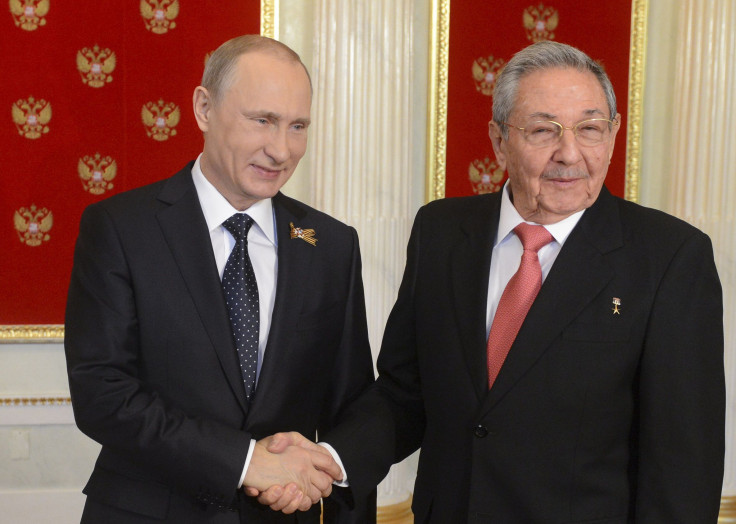Cuba Defends Russia, Criticizes Economic Sanctions, NATO's Expansion In Eastern Europe

Cuban President Raul Castro spoke out Thursday against economic sanctions the European Union and United States have imposed on Russia due to its purported involvement in the eastern Ukraine conflict. Castro’s comments came despite vastly improved diplomatic relations in recent months between Cuba and the United States after decades of political tension.
“The plan to impose sanctions against Russia will damage Europe, increase instability and bring new threats,” Castro said, according to Russian-owned Sputnik News. The Cuban leader also criticized NATO’s recent expansion of its military presence in Eastern Europe weeks after the U.S. moved hundreds of pieces of heavy weaponry into NATO nations in the region.
The European Union and the United States first imposed sanctions against Russia – including asset freezes and travel bans for members of Russian President Vladimir Putin’s inner circle – after the Kremlin ordered the annexation of the formerly Ukrainian territory of Crimea in March 2014. Western leaders also enacted sweeping economic sanctions on Russia’s major industries to punish Moscow for its apparent support of separatist rebels active in eastern Ukraine. The European Union voted in June to extend the sanctions through at least January 2016, or until Russia demonstrated a commitment to the Ukraine peace process, the Wall Street Journal reported.
This isn’t the first time Cuban officials have questioned the West’s economic sanctions against Russia. Speaking last month at a summit for leaders of the European Union and the Community of Latin American and Caribbean States, or CELAC, Cuban Vice President Miguel Diaz-Canel Bermudez condemned both the sanctions and NATO’s expansion as counterproductive to diplomatic relations, Tass reported.
Castro’s public defense of its Cold War ally came just days before the U.S. and Cuba planned to re-establish embassies in their respective capital cities for the first time since 1961. In his announcement of the agreement earlier this month, U.S. President Barack Obama said restored communication between the two nations would not prevent American officials from criticizing any of Havana’s policies they deem questionable.
© Copyright IBTimes 2024. All rights reserved.












